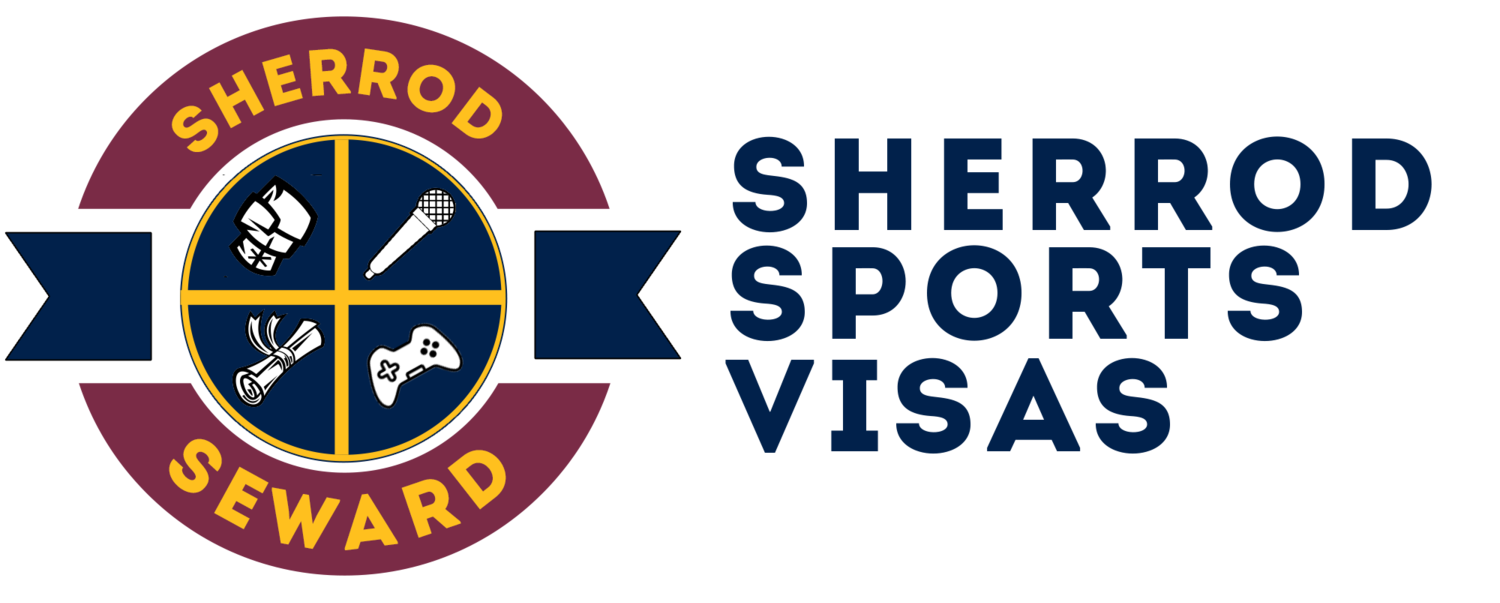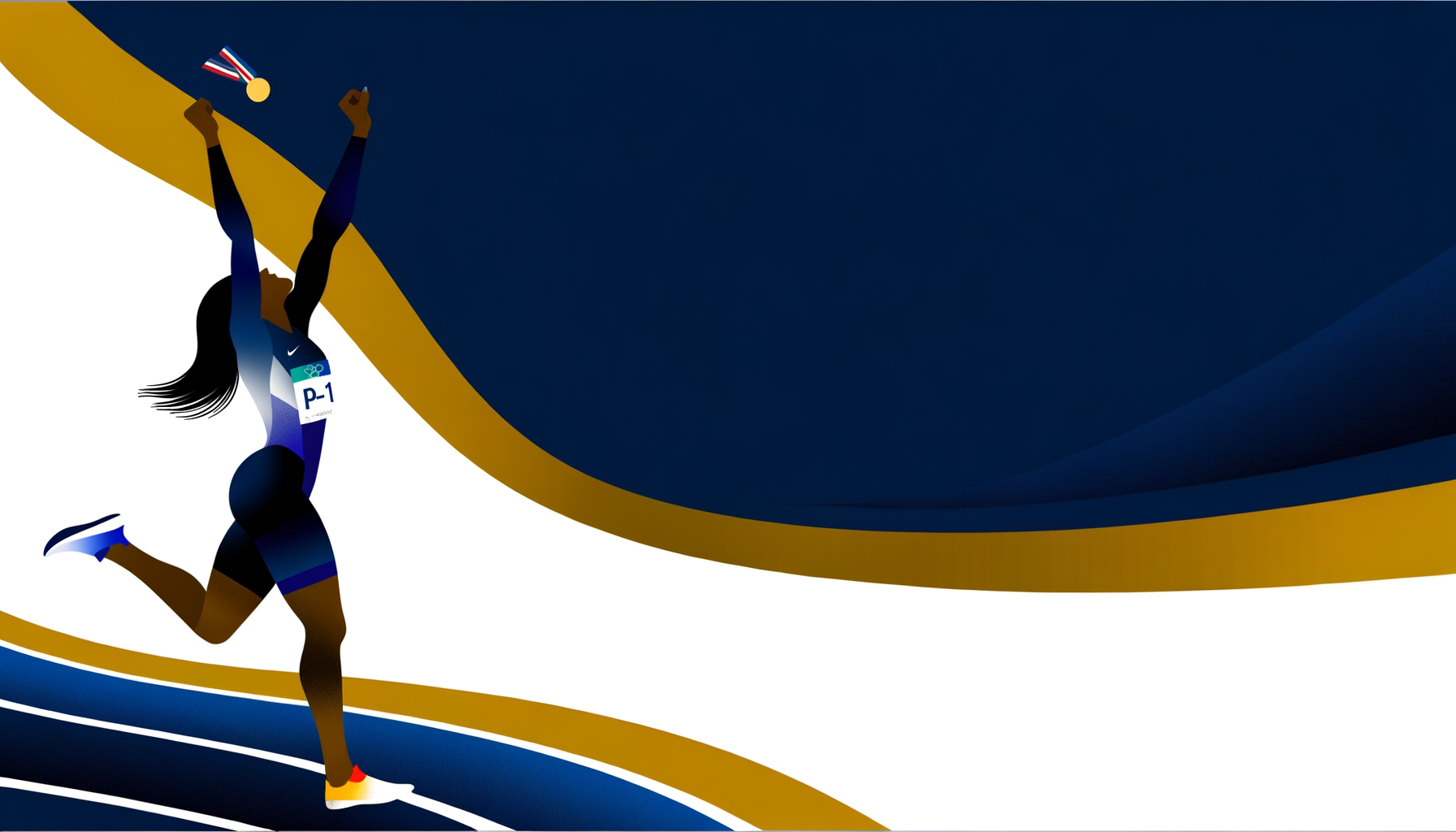From Rejection to Victory: How Maya Bruney Beat the Odds with Strategic P-1 Visa Application
The P-1 visa application process can be the difference between an athlete's American dream and a career-ending setback. For Olympic sprinter Maya Bruney, what started as a devastating rejection became a masterclass in strategic sports immigration law—and a testament to why expertise matters when navigating complex visa petitions.
The Challenge That Nearly Ended Everything
Maya Bruney arrived at a crossroads that every international athlete dreads. Despite her impressive track record as an Olympic-level sprinter with multiple international competitions under her belt, her initial P-1 visa petition had been denied by USCIS.
The rejection wasn't due to lack of athletic ability. Maya's achievements spoke for themselves—she had competed at the highest levels of international track and field, representing her country in prestigious competitions worldwide. The problem lay in how her case was initially presented to immigration officials.
"Many athletes assume that athletic talent alone guarantees visa approval," explains Attorney Sherrod Seward, Managing Member of Sherrod Sports Visas. "The reality is that USCIS adjudicating officers need to see a compelling legal argument that fits precisely within the regulatory framework. Athletic achievement is just one piece of a complex puzzle."
Understanding the P-1 Visa Application Process
The P-1 visa category serves internationally recognized athletes who come to the United States to compete at a specific athletic competition. However, the application process involves multiple layers of documentation and legal requirements that can trip up even the most accomplished athletes.
Key Requirements for P-1 Visa Success:
International Recognition: Athletes must demonstrate they are internationally recognized in their sport through sustained national or international acclaim.
Specific Event or Competition: The petition must be tied to a particular athletic event, competition, or season.
Essential Support Personnel: The visa can also cover coaches, trainers, and other essential personnel.
Temporary Nature: Unlike O-1 visas, P-1 visas are specifically for temporary athletic competitions or events.
For Maya, the challenge wasn't proving her athletic credentials—it was demonstrating how her participation would benefit the specific competitions she planned to enter in the United States.
The Strategic Turnaround
When Maya's case came to Sherrod Sports Visas, Attorney Sherrod Seward immediately identified the gaps in the original petition. The previous application had focused heavily on Maya's past achievements but failed to adequately address the regulatory requirements for P-1 classification.
"We completely restructured Maya's case," Seward recalls. "Instead of simply listing her accomplishments, we built a comprehensive narrative that showed exactly how she met each specific P-1 requirement while addressing the concerns that led to the initial denial."
The Winning Strategy Included:
Detailed Competition Itinerary: Rather than vague references to "track and field events," the new petition included specific competitions, dates, and venues where Maya would compete.
International Recognition Documentation: The team compiled extensive evidence of Maya's international standing, including media coverage, ranking information, and peer recognition from the global athletics community.
Economic Impact Analysis: The petition demonstrated how Maya's participation would contribute to the competitive level and commercial success of the events she planned to enter.
Regulatory Compliance Framework: Every aspect of the petition was mapped directly to specific P-1 regulatory requirements, leaving no room for interpretation or confusion.
Lessons for Other International Athletes
Maya's case illustrates several critical principles that apply to any P-1 visa application process:
1. Specificity Matters More Than General Excellence
While athletic achievement is essential, USCIS officers need to see exactly how that achievement translates to the specific competitions or events in the United States. Vague statements about being "internationally competitive" are insufficient.
2. Address Previous Denials Head-On
When reapplying after a denial, successful petitions must directly address the reasons for the initial rejection. Ignoring previous concerns or simply resubmitting similar documentation rarely leads to approval.
3. Documentation Strategy Is Everything
The difference between approval and denial often comes down to how evidence is organized, presented, and connected to specific legal requirements. Raw talent needs to be translated into legal language that USCIS officers can easily evaluate.
4. Timing and Preparation Are Critical
The P-1 visa application process requires significant lead time. Athletes who wait until the last minute often find themselves rushing through documentation that requires careful preparation and strategic presentation.
The Broader Impact on Sports Immigration
Maya's successful petition represents more than just one athlete's victory—it demonstrates the evolving landscape of sports immigration law and the increasing importance of specialized legal expertise.
"We're seeing USCIS become more stringent in their evaluation of athletic petitions," notes Seward. "Officers are looking for more detailed evidence and clearer connections between an athlete's background and their proposed activities in the United States. This trend makes expert legal representation more valuable than ever."
Current Trends in P-1 Visa Processing:
Increased Documentation Requirements: USCIS is requesting more comprehensive evidence packages, including detailed competition schedules and economic impact statements.
Stricter Interpretation of 'International Recognition': Officers are applying more rigorous standards when evaluating whether athletes meet the international recognition threshold.
Enhanced Scrutiny of Support Personnel: Petitions for coaches and trainers are receiving additional review, requiring more detailed justification of their essential nature.
Focus on Temporary vs. Permanent Intent: USCIS is paying closer attention to whether athletes are using P-1 visas appropriately for temporary competition versus attempting to establish permanent presence.
The Victory and What It Means
Maya's P-1 visa approval came through within months of the strategic resubmission. More importantly, the approval opened doors to competitions that significantly advanced her athletic career and international ranking.
"Seeing Maya compete successfully in the United States after overcoming that initial setback was incredibly rewarding," reflects Seward. "It reinforced why we focus exclusively on sports immigration—these cases aren't just about visas, they're about athletes' dreams and careers."
The approval also validated the strategic approach that Sherrod Sports Visas has developed for handling complex P-1 cases, particularly those involving previous denials or unique circumstances.
Key Takeaways for Athletes and Advisors
Maya Bruney's journey from rejection to approval offers several actionable insights for other international athletes navigating the P-1 visa application process:
For Athletes:
Start Early: Begin the visa process well in advance of planned competitions
Document Everything: Maintain comprehensive records of achievements, media coverage, and international recognition
Understand the Requirements: Learn the specific legal standards for P-1 classification, not just general immigration concepts
Consider Professional Help: Complex cases often benefit from specialized sports immigration expertise
For Sports Organizations:
Develop Visa Strategies: Build relationships with immigration attorneys who understand sports law
Support Documentation: Provide detailed letters of support that address specific P-1 requirements
Plan Competition Schedules: Consider visa processing times when planning international athlete participation
Create Template Systems: Develop standardized documentation processes for recurring international athlete needs
The Future of Sports Immigration
Maya's case occurred during a period of significant change in sports immigration policy and processing. Understanding these trends is crucial for athletes and organizations planning future visa strategies.
Emerging Considerations:
Technology and Documentation: Digital platforms are changing how evidence is submitted and evaluated, requiring new approaches to documentation strategy.
International Competition Landscape: The global sports calendar continues to evolve, creating new opportunities and challenges for athlete mobility.
Regulatory Updates: USCIS periodically updates its interpretation of P-1 requirements, making ongoing legal expertise essential.
Economic Factors: Immigration policy increasingly considers economic impact, making financial documentation more important in athletic petitions.
Working with Sherrod Sports Visas
Maya's success story exemplifies the comprehensive approach that Sherrod Sports Visas brings to complex P-1 cases. The firm's focus on sports immigration allows for deep expertise in the unique challenges facing international athletes.
"Every athlete's situation is different," explains Seward. "Our role is to understand not just the legal requirements, but also the athletic and business context that makes each case unique. That's how we turn challenges like Maya's initial denial into strategic victories."
The firm's track record with P-1 visas spans numerous sports and competition levels, from Olympic athletes to professional league players to specialized sports professionals.
Conclusion: From Setback to Success
Maya Bruney's journey from visa denial to approval illustrates a fundamental truth about the P-1 visa application process: success requires more than athletic talent—it demands strategic legal expertise and comprehensive preparation.
For international athletes facing similar challenges, Maya's story offers both inspiration and practical guidance. With the right approach, even significant setbacks can become stepping stones to greater success.
The key lies in understanding that the P-1 visa application process is as much about legal strategy as it is about athletic achievement. When these elements align with expert guidance, the results can be transformative.
Ready to discuss your P-1 visa strategy? Contact Sherrod Sports Visas today for a consultation with Attorney Sherrod Seward and learn how strategic legal expertise can turn your athletic achievements into visa success. Don't let documentation challenges derail your American sports dreams—get the specialized help that makes the difference between rejection and approval.
For more information about P-1 visas and other sports immigration options, visit our P-1 visa resource page or contact our team directly.

